Fake Sports Cards
During the extreme rise in popularity of sports cards during the Covid and post Covid Era, malicious activity has dramatically escalated.
Fake grading labels have seen a spike with advancements in home printing. Unauthorized reprints have continuously hit third-party markets. “Card artists” are repeatedly creating cards with multiple counts of trademark infringement. Counterfeit cards are being printed by the thousands as we speak. The brand damage and loss of revenue continue to snowball.
Reprint cards are meant to commemorate an athlete’s significant card from the past. From Michael Jordan’s 1986 Fleer to a modern Josh Allen Kaboom. Reprint cards are generally issued in Anniversary style by the original company that owns the intellectual property. Even when it’s listed on a marketplace as a reprint, still doesn’t mean it was officially issued by the manufacturer nor gives them the right to reproduce.
Unfortunately, individuals are creating counterfeit reprints with their printers. Differences are noticeable to a novice eye, however, the newbie entering the hobby will suffer. As they won’t have enough experience to decipher and navigate counterfeit cards. Thus placing a cold damper on the ceiling of overall collectors in the hobby.
You’ll notice a difference in this side-by-side example of an authentic 1986 Fleer Jordan seen on the left. Opposed to the counterfeit on the right which appears to be the same card, but dull and grainy photo quality and flimsy card stock will set the two apart.
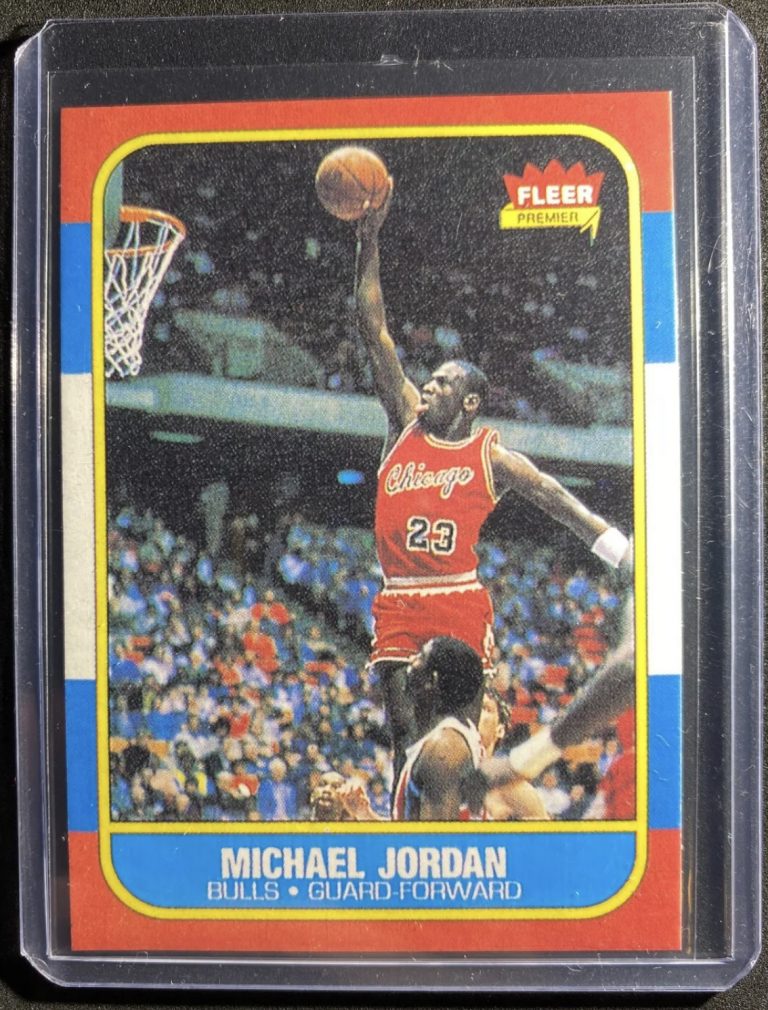
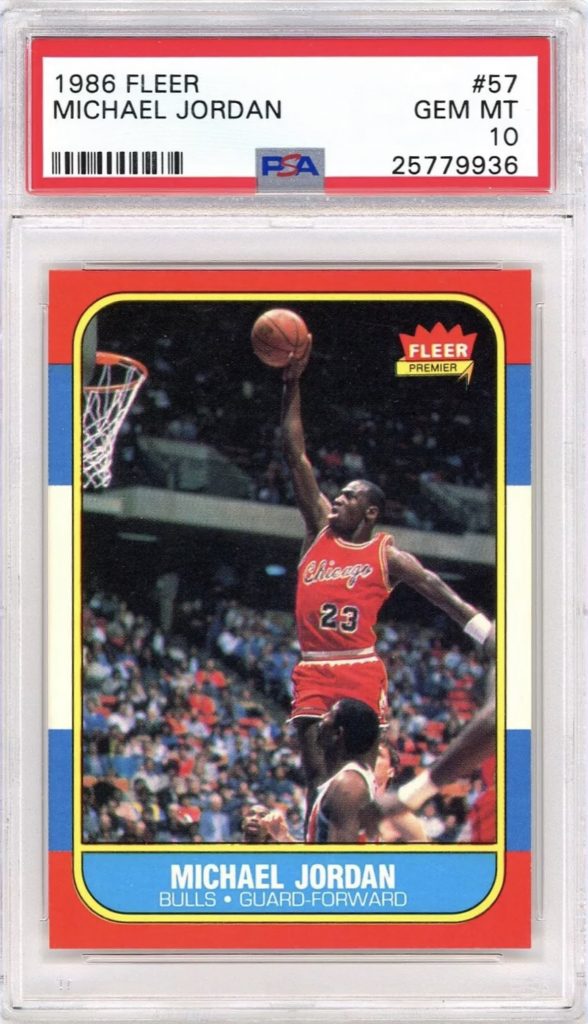
A more modern example of a counterfeit card is used with a grading twist of the arm. The authentic Josh Allen Kaboom is on the left. “Gem Grading” a now-defunct grading company (source: https://allvintagecards.com/sports-card-grading-graveyard/) is shown to enclose and grade a reprint Josh Allen Kaboom insert on the right. The surface finish on the counterfeit Josh Allen is shiny but very dull. The front “serial” number which isn’t stamped but printed into the card is the repeated “7/10” serial marking.
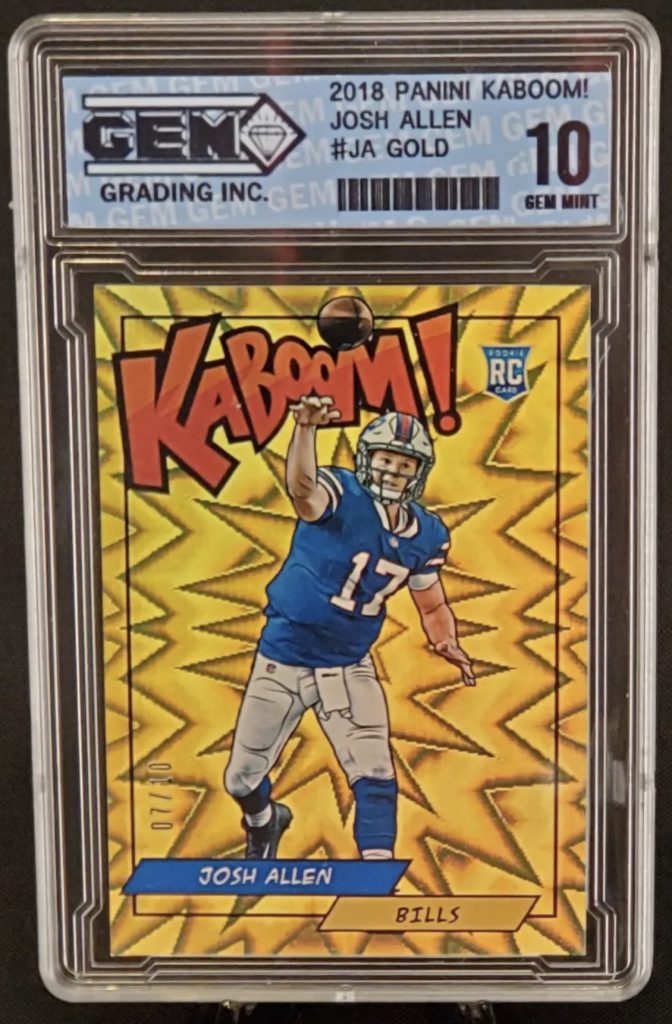
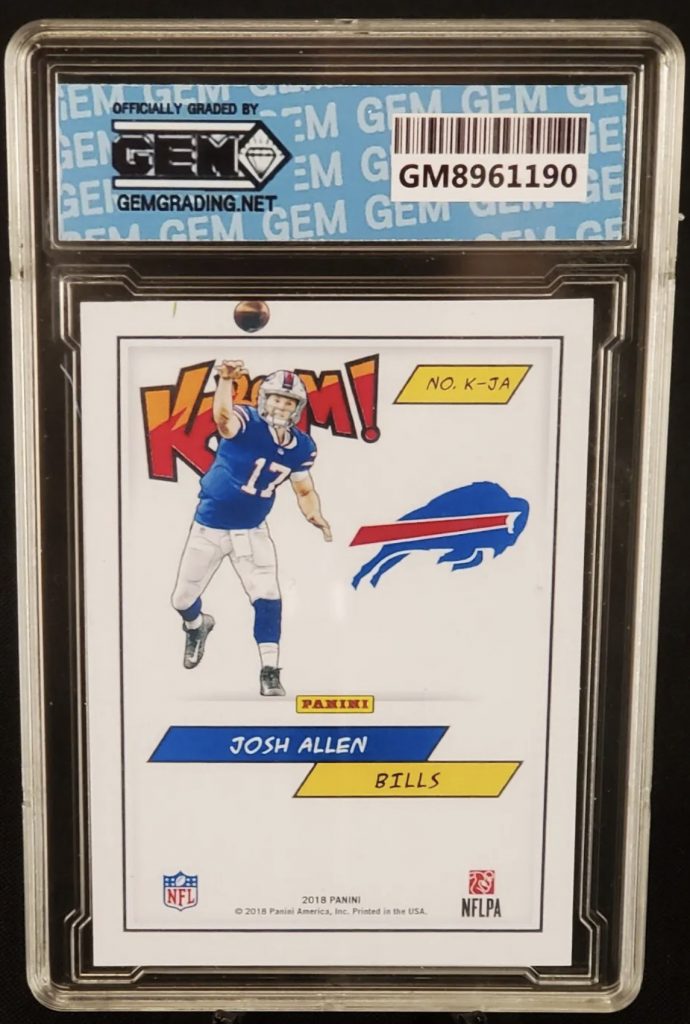
Covid lockdowns created a vast amount of extra time for many. During that difficult time, the card artists’ booming era was born. As cards increased in value overnight and retail wasn’t even available, people began to create their own cards. There are many concerning issues with card art. Many card artists have pressed trademark concerns by copying company logos, brand names, and insert names. For example, if you look at the card below, you’ll see a Tom Brady card with a Panini Select front, and a reproduced Bowman 2000 back, complete with what is considered USPTO trademark infringement.
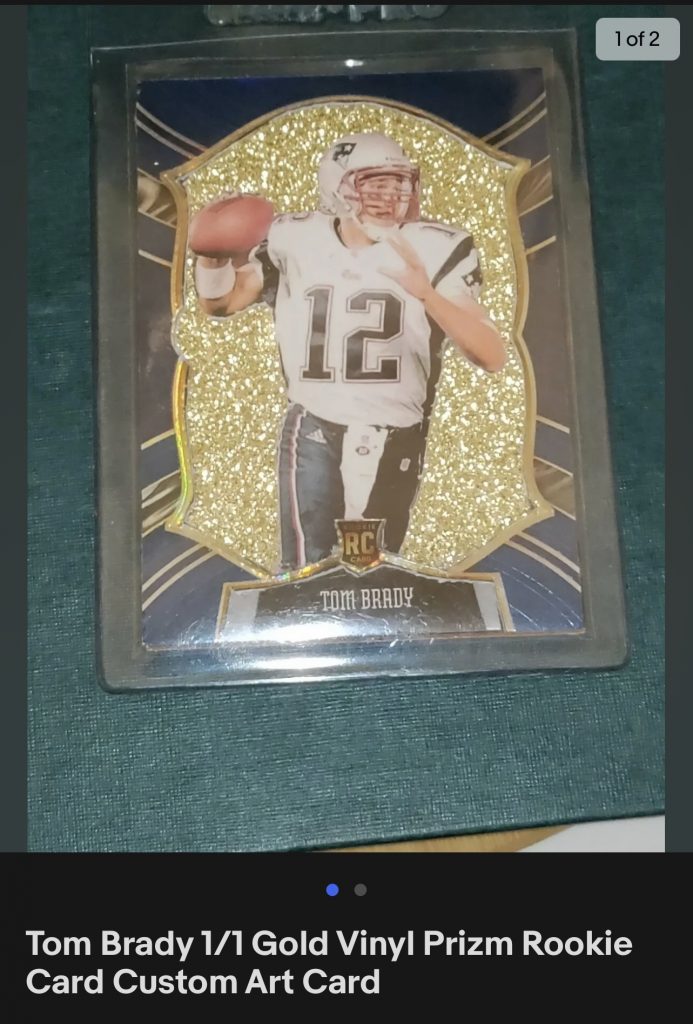
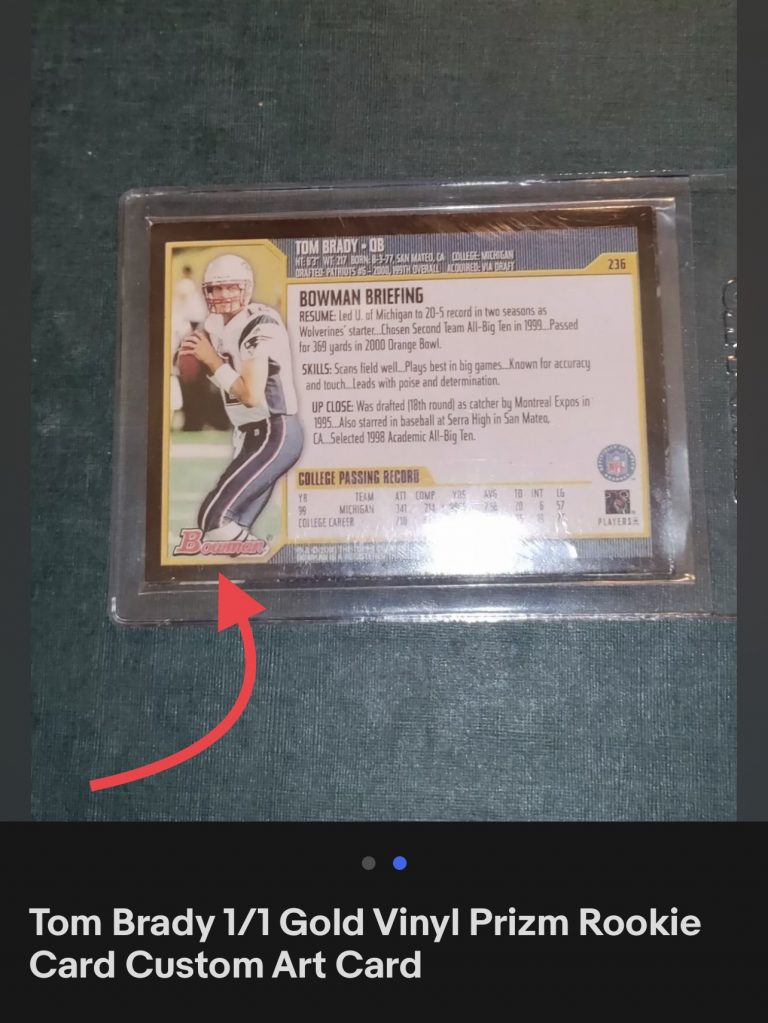
The largest issue at hand in stopping these three forms of trademark infringement is the time and resources to stop the abuse. There aren’t any systems in place, and too many variable cases to keep a thumb on counterfeits and infringement. It’s a continuous cat and mouse chase. However, Brand TKO has developed a time-saving software called Hobby IP that pulls these cards based on a combination of keyword pools and manual review. We’ve discovered that most counterfeit and IP infringing cards are sold on; Facebook, Instagram, Ebay, Etsy, Mercari, and various search engine direct listings. We have the ability to eradicate this dampening fraudulent sector of the hobby. We look forward to serving the hobby for a very long time. For more information contact us.


